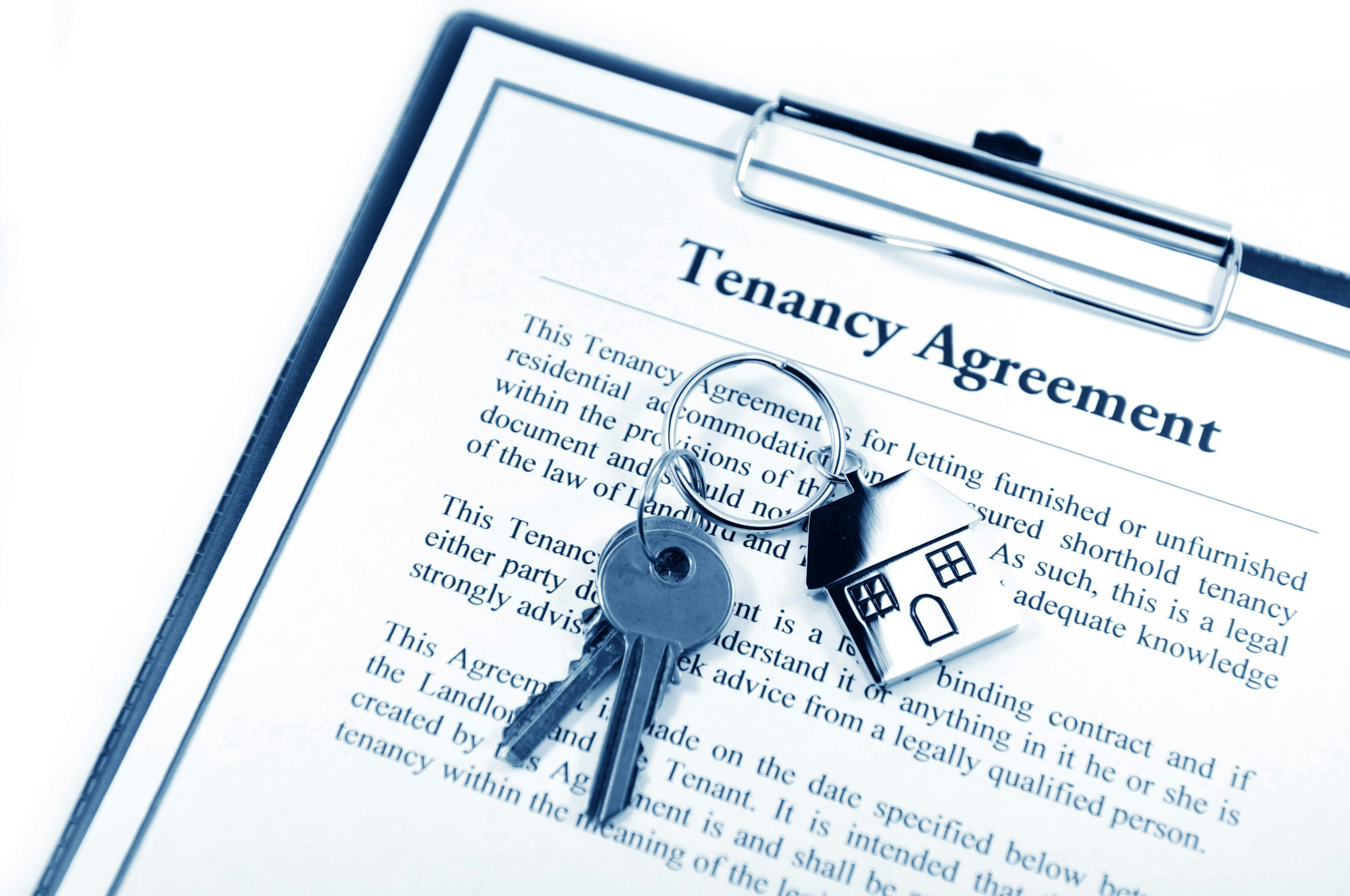Guide to landlord risks | The cost of being a landlord
By Alan Boswell Group

Landlords problems
Becoming a landlord can provide you with a regular income stream and a valuable asset that’s value will increase.
But if you’re a new landlord, or thinking of becoming one, it’s important you understand your responsibilities towards your tenants.
Understanding the risks associated with owning a rental property puts you in a better position to be able to avoid them, or to mitigate their impact should things go wrong.
Whether it’s reducing the chance of having non-paying tenants, covering yourself in case of any legal issues, keeping on top of the maintenance of the property, or ring-fencing some money to cope with any unexpected costs, there are steps you can take to reduce the risks.
Here we look at some of the issues you might face, and what you can do to prevent them from happening.
Letting agent management fees
You might decide to manage the property yourself, in which case all the rent that is collected comes straight to you. You’ll also be the one who has to find a tenant in the first place.
But many landlords decide to pass the day to day running of the property to a letting agent. They will take a portion of the rental income, but it means you have an experienced professional to help you and to deal with any problems.
Not all agents are the same, though, so you need to decide what level of service you want.
If you opt for a basic management service, the agent will normally help you find tenants, carry out credit checks and interview prospective renters.
A full management service will do much more than that, including communicating with the tenants on your behalf throughout the period of the agreement, collecting the rent and sorting out any issues that might crop up. This is a more expensive service but relieves you of the responsibility for the running of the property.
There are also differences in the level of service depending on whether you use an online or high-street agency.
If you choose the high-street option, you can expect to pay around 15% of the rent to the agent for a full service, or roughly 8% for the basic service.
If you opt for an online agent, it’s more likely that you’ll simply pay an upfront fee for the initial letting, or a lower monthly fee.
Whichever option you choose, make sure to shop around, read reviews, and know what you’re getting for your money. It’s also important to check whether you’ll be charged if the agency doesn't manage to find you a tenant. As well as saving you money if your property is un-let, it also aligns the agent more closely with your own interests – they know they won’t get paid if they don’t find a tenant.
Read more: Landlord letting agent fees
The cost of finding a tenant
If you use a letting agent then they will take this responsibility, but you will be paying for this service as part of the fee that they charge.
Some letting agents offer a ‘tenant-find service’ where they will find the tenant for you and complete the necessary references and documentation, but the ongoing management is down to you. The cost of this is normally the equivalent of one months’ rent.
If you decide to manage the property yourself, you will be responsible for the cost, and time involved, with finding new tenants. This might be advertising on social media, in the local papers, or on websites like Gumtree. You won’t be able to advertise on sites like Rightmove and Zoopla as they only deal with letting agents direct.
Once you have found an interested tenant, you will also need to be on-hand to show them the property and arrange all the relevant paperwork and pre-rental checks.
Read more: Your essential landlord checklist
Get the right insurance
It is crucial that you take out the right type of insurance to protect yourself and your investment.
You are not obliged by law to have insurance, but you’ll be leaving yourself hugely exposed if you don’t – and if you have a buy-to-let mortgage on the rental property, your mortgage lender will normally insist that you have an insurance policy in place.
A normal home insurance policy won’t cover your rental property, so you need to take out landlord insurance.
As with all insurance policies, you’ll have a range of optional covers, so make sure you know what you’re getting.
The most important cover is for buildings and contents, but it’s worth thinking about extending the cover for things such as:
Rental insurance - covers non-payment of rent whilst you go through the process of regaining possession of the property, for up to 15 months.
Alternative accommodation insurance – covers the cost of alternative accommodation for your tenants if the property becomes temporarily uninhabitable due to an insured event.
Home emergency cover – covers the cost of emergencies, such as plumbing or heating issues.
Loss of rent – covers rental payments if the property cannot be rented out due to an insured event, such as fire or flood.
Malicious damage insurance – covers the repair or replacement cost to rectify damage caused by tenants or their guests.
Legal expenses – pays for professional advice if you need to defend yourself in a legal case. This policy can also provide access to a 24-hour legal helpline, tax investigation cover, and help with evictions.
Excess protection – covers the cost of your policy excess if you make a claim.
Employers’ liability insurance – this is a legal requirement if you employ anyone in relation to the management of your property.
You will also need to review your insurance if the property is empty for a period longer than 60 days. Your insurer may put a clause on your current policy to restrict cover whilst the property is unoccupied, or you will need to change to unoccupied property insurance which will provide restricted cover for the property (providing certain conditions are met).
Read more: Landlord insurance: a beginner’s guide
Illegal activity
Illegal activity at your property can have a wide-reaching impact on costs and reputation, particularly if it’s used for drug production. Rental properties can be particularly attractive for use as a cannabis farm as it’s possible for the property not to be linked to the person on the tenancy agreement. The cost to reinstate a property to a point where it can be re-let after it has been used as a cannabis farm can be incredibly high.
If illegal activity does take place, you could find yourself in hot water. You can be prosecuted as the property owner, and in the example of a cannabis farm you could be hit with a steep fine and, theoretically, a jail term.
While you can never 100% guarantee that a renter will use your property in the way you intend, carrying out thorough screening at the start of the process can reduce the risk that you’ll get a troublesome tenant. Periodic property checks will also help you spot signs of any obvious unwanted activity.
Malicious damage and vandalism
Malicious damage or vandalism caused by tenants could happen for a number of reasons. Whatever the reason it is likely to leave you with the cost, and hassle, of having to repair or replace whatever has been damaged to get the property in a state where it can be re-let.
Of course, you may be able to pursue the tenants for these costs, and the security deposit will offer a certain amount of protection, but the time involved in doing this will be significant and you may still find yourself out of pocket depending on the extensivity of repairs required.
Non-payment of rent
Unfortunately, there will be situations where tenants can’t, or won’t, pay their rent.
This can hit your cashflow, but you will be expected to keep making payments on your mortgage. If it becomes an ongoing situation you may take the decision to regain possession of the property, in which case you’ll need to go through the process of evicting the tenant, and take on the cost that this comes with.
Rent guarantee insurance can help in this situation by providing cover for non-payment of rent whilst you undertake the eviction for up to 15 months, along with a further three months cover whilst you find new tenants.
Safety checks, maintenance, and cleaning
As the landlord, regardless of whether you self-manage or use a letting agent, you remain ultimately responsible for keeping the property safe and in good order.
By law, you are required to carry out annual checks on gas and electrical appliances and make sure there are working smoke alarms in place.
Along with these essentials, staying on top of any problems with the property before they become big issues can help prevent a huge bill for you. Carry out regular checks on the property and ask the tenants to let you (or the agent) know if there’s a problem.
You should also aim to build up a pot of money that you can access in case you need to carry out any maintenance or emergency repairs.
It’s also important to note that landlords are not able to charge tenants for end of tenancy cleaning, and so this is another cost that you will need to factor into your calculations.
Read more about your responsibilities as a landlord here.
Extended vacant periods
If your tenants change there’ll probably be a period when the property is unoccupied. And if you struggle to find new tenants, this period can be longer than just a few days.
Your financial responsibilities as the property owner will continue though, despite not receiving a rental income. You’ll still have to pay your mortgage, insurance premiums, council tax, and utility bills.
Ringfencing some cash for vacant periods can help you avoid falling into financial difficulty and tide you over until your property is re-let.
Buying the wrong property
If you spend too much money buying or doing up a property, or you buy in an area where there is minimal demand for rental properties, you’ll quickly find that you’re not getting the return on your investment that you were expecting.
You can also be stung if you buy a property at the height of the market and then find your rental income falls when the market falls.
You can help avoid falling into this trap by doing your research before buying or doing up a property. Check what rents similar properties are able to command and try to find out if there is demand in the area. If there are already a lot of un-let similar properties, it might be worth reconsidering your plans.
Consulting a letting agent or landlord association can help as they have knowledge of the local area and how much you could reasonably expect to charge.
Legal problems
There are several reasons why a tenant might take legal action against a landlord.
These include the property being uninhabitable, a challenge against an eviction process, or failure to return a damage deposit.
Following good practice means you should be able to avoid these scenarios, and make sure you understand the rights that your tenants have.
But consider including legal expenses cover as part of your landlord insurance, as it can prove valuable if a claim is lodged against you.
For further advice and guidance, consult our landlord advice hub or speak to a local letting agent or landlords association.
Need help with your insurance?
Whether you need a quote, have a general enquiry, or want to talk it through over the phone, we're here to help.
Landlord insurance enquiry
Related guides and insights

Alan Boswell Group - Award-winning landlord insurance provider
Read more about our award-winning landlord insurance products.

Do I need landlord insurance?
From buy-to-let portfolio owners to people renting out a room in their home, different kinds of landlords need different types of landlord insurance. In this article we look at some of the common questions that arise when considering landlord insurance.

Guide to landlord responsibilities
What are the legal responsibilities and obligations of a private landlord? Read our complete guide.

Things landlords cannot do
If you’re a landlord, there are a lot of legal conditions you must comply with. In this article, we look at what landlords can and cannot do, and give tips on avoiding common mistakes when managing your properties and tenants.
